
Have we become too clean?



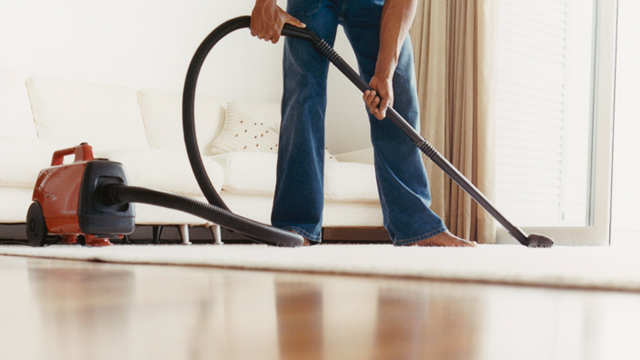
This month I had a conversation with a patient about vacuum cleaners and how they only work if you use them, rather than just leave them in the middle of the room. It got me thinking about a new vacuum I bought for the clinic last year (or so I told myself…)
The new little vacuum didn’t even make it into the clinic! I brought it home and there it’s stayed…
The old vacuum is certainly effective, but it is big, cumbersome and lives in a cupboard, while the new one is cordless, light and slots onto a little stand for recharging. You can simply pick it up, vacuum up what you need cleaned up and pop it back with absolutely zero fuss. Since this little vacuum entered my home, I think I vacuum at least ten times as much as before! Why? Because it’s fuss free, it requires so much less effort to use and (most importantly) it’s visible!
This is one example of how small changes to your surroundings can change your behaviours (and even your thoughts about particular situations). In this case, I’m still the same person, but my behaviour changed purely because it was now easier for me to complete the task. Previously, once I actually dragged out the old vacuum I was often surprised about how quickly and easily I completed the task and wondered why I put it off for so long, but then proceeded to follow exactly the same pattern of thoughts and procrastination each and every time.
I broke that pattern by changing something, Any change, however small, can lead to a breaking an unhelpful pattern of thoughts and it’s these small changes that play a part in setting yourself up for successes, rather than repeated failures.
I’ve always advocated for enabling small successes through small changes that lead to big successes and big changes. In general, if something takes more effort then you are less likely to do it, and if it takes less effort then you are more likely to do it. These small changes can be as simple:
– If you have more racing thoughts at night, then keep your journal by your bed rather than in a different room.
– If you are struggling with snacking on sweets at work, keep them off your desk and away in a cupboard – having to walk to your cupboard can be hard compared to reaching into a drawer at your desk!
– If you are finding that time escapes you, take a minute to make a plan and schedule time for yourself. Even committing to paper (and no one else!) can be enough to make it real.
– If you always have a bag of frozen vegetables in your freezer, you’re more likely to add them to meals rather than avoid spending time prepping fresh ones.
It’s human nature to do what is easiest – it’s not a moral failing or character flaw! Your environment can significantly impact your choices, your behaviours and your thoughts – so set yourself up for success and make that environment one that works in your favour rather than against you.

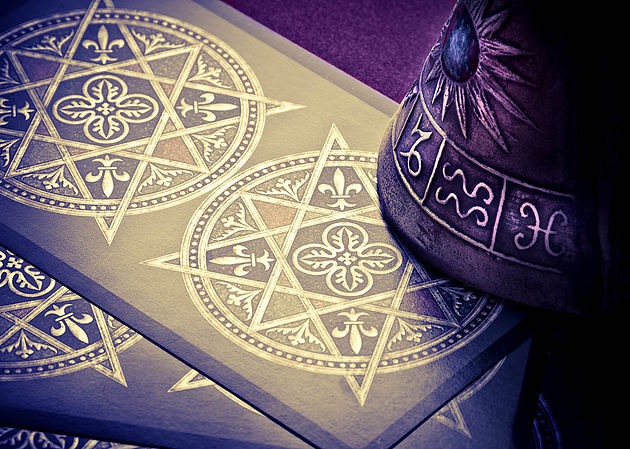
Everyone knows me as a straight-laced, by-the-book, evidence-based health practitioner. In fact, I’m known for my extensive knowledge of rather boring facts that I can recall about almost any topic at will, but did you know I dabble in something softer, more esoteric…?
Yes, I dabble in mindfulness and self examination!
Every now and again I’m reminded that I have majors in both psychology AND philosophy (focusing on epistemology and metaphysics). I often forget about that second one because I focus so much on the clinical aspects of my profession. This month, I had a little reminder…
Growing up, I’d had a book on fortune telling that fascinated me and I was particularly interested in cards. I had a theory in my early adolescent mind that while the cards were face down in the stack the top card was simultaneously all the cards and none of them – that the card ‘became’ itself upon being flipped over and viewed. Later on, I learned about uncertainty principles, observer effects and the beauty of both physics and metaphysics in how we try to understand those ideas.
On a whim, I purchased a set of “Angel Cards” purely because I thought they were pretty and reminded me of the artworks of some of my favourite neoclassicist painters, such as Adolphe William Bouguereau. Reading the booklet that came with them made me laugh because I didn’t feel any connection like that described within – I just liked the art! Still, on a particularly stressful day (just before taking my 4yo son for a surgical consult regarding his recently broken nose) I decided to lay some cards down and do a reading for myself.
As always, the thought that the top card both existed already in that place and didn’t exist until I viewed it popped into my mind, but I completed a layout and read my cards. My cards indicated Strength for upcoming changes, Nature for inspiration and Claircognisance for guidance (that last one added to my collection of random facts because I had to look up what it meant!). I had a giggle and moved on with my day of taking my boy to hospital without giving it much more thought.
During the hours of waiting, however, I had some time to reflect on those cards. I had time to quietly contemplate and assess what those words mean, how they enter my life and the various aspects of my life that could stand to have a little more strength, nature or claircognisance (go on, look it up!). I found that I fixated on those words quite a lot that day and found them to be an effective focus when it was all too noisy, too bright and too hectic around me.
The cards themselves were not particularly special, but I was able to take the exercise of the reading and use it as a calming focus for myself when I needed it. This was a practice of mindfulness and self examination in a place that is usually not conducive to introspective thought, but it was calming and soothing at a time when I needed it most. Some people flip open a book to read a random passage and others look for patterns around them – anything can work as a focus if you are open to letting your mind have a play.
I’m not sure if I’ll do more readings, but the cards are just there, ready to prompt some new words to focus on at any time.


Who’s noticed the Christmas decorations popping up already? Some places jump in early and start putting them up in November, whilst others like to really get a head start and have Christmas items available in October! Whilst this doesn’t bother me one way or another, it does serve as a sign that the next couple of weeks are likely going to get tougher for many people.
Much like the archways and carpets of purple jacaranda trees in bloom were a reminder that it was really time to knuckle down and study because exams were only weeks away (I know, I know… I was one of those students!), the emergence of Christmas decoration is a signal that those who are already struggling are about to be struggling even more.
Those who are in a financial bind find this time of year particularly difficult with lower working hours and higher expenses, especially if they rely on childcare during school holidays. Those in situations of family violence or abuse often find this time of year an even greater risk to their safety as tempers (and often alcohol) run over. Those who struggle with addiction (substance, food or habit) can find this time of year to be an even greater challenge than the rest of the year as the words ‘treat yourself’ become more visible with each day. Those who are affected by physical or mental conditions often find their symptoms are exacerbated towards the end of the year by stress, fewer available treatment appointments and a sense of exhaustion. Those who are already in fragile mental states through depression, grief or anxiety can find their balance is tipped from managing their condition to not coping well at all.
It is important to remember that if you are not one of these people, it is very likely that others close to you are. They may not wish to advertise their struggles, but their struggles will still be very real. Try to look beyond your immediate needs and be aware of who may be having a particularly hard time – offer them support, kindness and gentleness. It may well be the most important gift they receive this year.

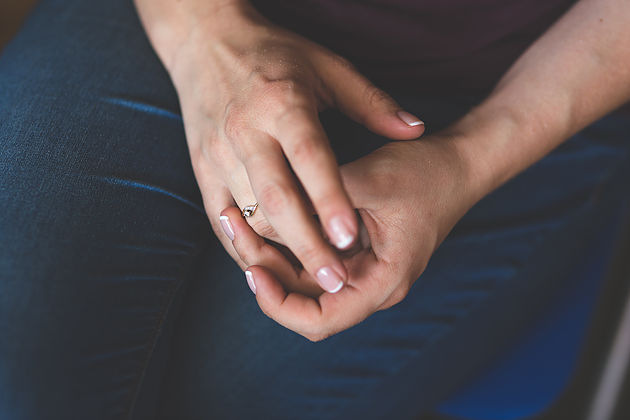
Despite not planning it, I have ended up primarily working in womens’ health and most of my patients are mothers, ranging from the very new to those with decades of experience. As a result, I tend to see the same issues presenting over and over and over again. I see the exhaustion from excessively long ‘to-do’ lists, sleep deprivation from broken nights or too early mornings, and malnutrition from skipping meals or ‘forgetting’ to eat something fresh and from the ground. I see the conditions that have gone for far too long because there was always something else that needed to be dealt with that had higher priority – for many women, then don’t even remember when they because the least important person in their lives (more on that another time…)
But more than that – I see the loneliness. These women are connected to others in a myriad of ways – social media, work, school, family, friends – but they are essentially all lonely. Despite never actually being alone, they feel constantly alone. Within the struggle of balancing the various hats they wear – wife, mother, daughter, sister, worker, friend – the balance is lost, often to the point that ‘self’ is also lost along the way.
Many of these women have people they consider friends, but they are kept at a distance (emotional or physical) for a variety of reasons. I wonder if this new definition of friend is beneficial, because the relationships described as friendships by these women would barely pass as acquaintances. So many of these strong, intelligent women describe having many friends, but no one close at all, and they give a dazzling array of reasons as to why it has to be that way. Some of these include self protections (because you can’t be hurt if no one gets close), comfort (because even the idea of organising a catch up is too much), circumstance (moving frequently can disrupt even the best intentioned relationships) or even just societal expectation (the idea that women are natural nurturers and should be self sufficient without needing to rely on others).
The last one is the one that sticks with me most – women are burning out because they think they are supposed to do it all, all the time, flawlessly.
So many women are so set in their way of thinking that they MUST be able to do everything perfectly without assistance that even the smallest change to let go becomes incredibly difficult. We have forgotten that in the past women were not alone in raising children – there were extended families, neighbours, friends who had done, were doing or would be doing the same thing. Just as most women today have never seen a normal birth instead of the sanitised and unrealistic movie-births (yet more false expectations on women), many women of my generation have never seen a village raising a child – only the smallest units who are encouraged to stand alone and showcase show easy and wonderful it is to do it all!
When asked “Are you lonely?” they respond that of course they’re not lonely! They have 250 friends on social media and share inspiration boards with 150 more! There’s not time to be lonely! Yet they all describe, in exquisitely painful detail, exactly how lonely they really are before sometimes realising just how alone they feel.
Change takes time and effort. Not everyone is ready at any given time to attempt to change their mindset, their surroundings or their approach. For some it can take months or even years, and some never really manage it at all. Societal change takes even longer, but it is heartening to see there is more being discussed out in the open on the loneliness of mothers today, no matter how connected they may be in the digital world.
Most importantly, you don’t have to attempt anything it on your own.
You’re not alone.

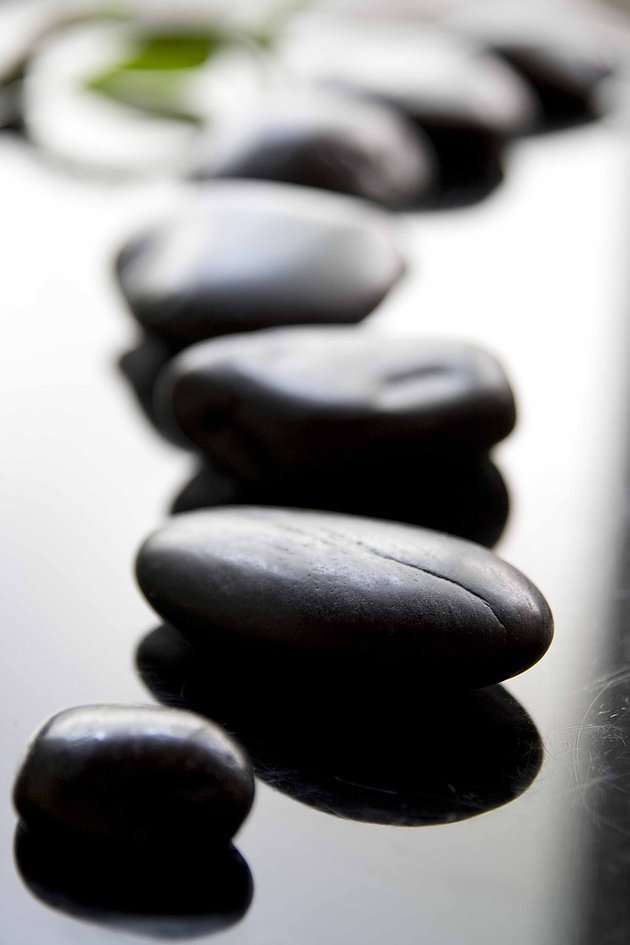
By now, we’ve all read about the benefits of gratitude in terms of positive mental health and even improvements to physical health. There is plenty written about how gratitude is good for you and there is a booming market in gratitude journals, apps and playlists. (Just in case you’ve been living under a rock for the past decade have a look here, here, here and here for a starting point on the benefits of gratitude!)
I was very pleased to heard some nice words from two patients in the last month within days of one another – one wanted to touch base and ask my opinion on an activity she was interested in trying, the other had turned his world view around significantly in recent months.
Both said ‘thank you for being my stepping stone’.
Those. Exact. Words.
I found this to be both a tremendous honour, incredibly humbling and, at the same time, powerfully uplifting. Here were two people who came to me for vastly different issues (although both were physical rather than psychological worries), but who came away feeling so much more empowered to change their lives for the better. They were always capable of doing so, but just needed that first step in the right direction to be guided by someone else.
It’s a very humbling experience to be the person who can hold someone’s hand as they take that step in the right direction which leads them to change their entire lifestyle or world view and to watch them bloom into their new self – happier, healthier and better able to continue to grow.
I think I’ll keep being a stepping stone for a little while longer 😉

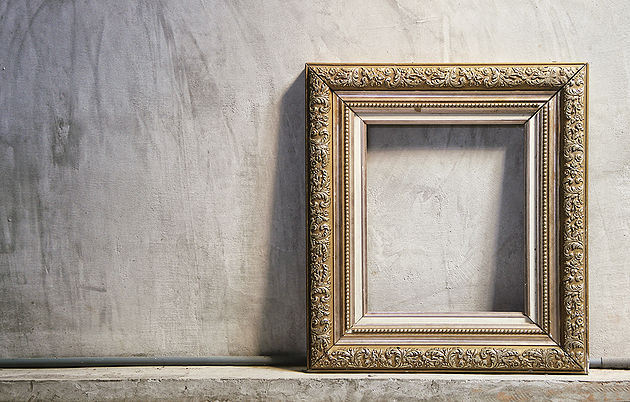
I am seeing a patient this month for unexplained weakness and perceived weight loss. In the course of six months, he lost his mother and best friend (both overseas), cut his alcohol intake and started an almost vegetarian diet and very small portion sizes.
He’s not stressed, he tells me – he’s just a little sad. I can see right away that he is more than just a little sad. He looks exhausted and drained and burdened. As we talk, he reveals that he is sleeping fine – a few hours a night. That his appetite is fine – for one or two small meals per day. That his mood is fine – except that he last felt happy months ago. That his energy levels were fine – except he was so tired. He eventually concedes that maybe things are not all that fine after all.
I ask him about whether he’d considered grief counselling and he laughed and said he ‘doesn’t believe in that stuff’! On the other hand, he did listen carefully to how much ‘that stuff’ can affect him not only physically in the here and now, but also when looking back at his life and reliving many of the moments triggered by the passing of two people so close to him. He carries the memories and emotions of these experiences as heavy weights which have only seemed heavier in the last few months. Is it truly any wonder he was feeling weaker?
I had set him a difficult task this month – to actively pay tribute and explore those memories, and to reframe them. Some of the guilt, anger and sadness he has been carrying for decades will lift as he is able to see the events and the people involved from a different angle. He cannot change the events, but he can change how he feels about them. By changing his feelings surrounding these events, he is able to change his thoughts. What’s more, by practicing this skill, he will be better able to assess future experiences and reframe them at the time, rather than (at times) years later after they have had time to become an almost permanent fixture in his psyche.
At the end of the month, he has filled pages in his journal with moments from the last 40 years that he can look back on now with a completely different vision. It was not easy, but it was essential. He will be able to carry those memories far more easily.
What appeared to be on the surface a simple case of nutritional inadequacy had a far deeper component. I often mention that the mind and body are so closely linked that changing something small in one can have tremendous effects on the other – why not guide those effects in the best direction possible?

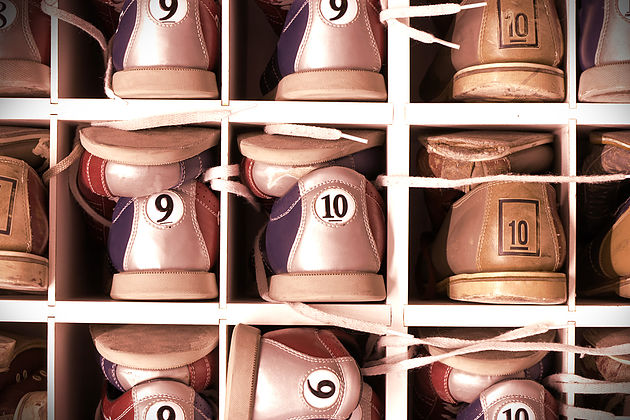
The last year has been one of tremendous growth, change and defining who I am as a person, mother, wife, daughter, friend and practitioner. I’ve had the opportunity to try many new things and work out where I fit in grand schemes. Most importantly – I’ve had the opportunity to work out where I DON’T fit!
The example that jumps straight to mind is that of a group practice that I joined. I was full of enthusiasm and energy about working in a great space with wonderful people. On the surface, it seemed like this was where I was supposed to be! Unfortunately, as time went on it became obvious to me that it wasn’t the right fit. It was just little things at first, but it was more and more clear that what I considered crucial to effective therapy was not the same as what management considered important. I was faced with a tough decision – change the way I worked to fit the mould of the group practice, try to continue to work in my own way and never mind how others worked, or accept that sometimes it’s just not going to happen and there are surely other places that will fit better.
In the end, I chose the last option – I couldn’t see myself changing my practice style when this is what I was good at and what achieved good results. I know that in the past, I would likely have tried to change myself in a desperate attempt to fit in with my surroundings, but not anymore. Now I look for surroundings that fit me – not the other way around. It’s not always going to be perfect, but much like finding the right pair of shoes, there’s no point hurting yourself if it’s just the wrong fit.
As it turned out, while that practice was not the right fit for me, it did give me the opportunity to meet some fantastic people and opened doors that I would otherwise have not even known existed. As such, there is value in a ‘wrong fit’, as long as you can see where you are and where you need to go.
Going through those periods of ‘wrong fit’ is unpleasant at the time, but they are absolutely invaluable when it comes to learning about yourself. Reframing negative experiences to move from being angry or upset about what’s happened to being able to see the lessons therein can be difficult, but it is certainly worthwhile. I’ll write about reframing next month, but this month let’s just look at where we are and whether you’re giving yourself blisters by staying in a situation that definitely is a poor fit for you!

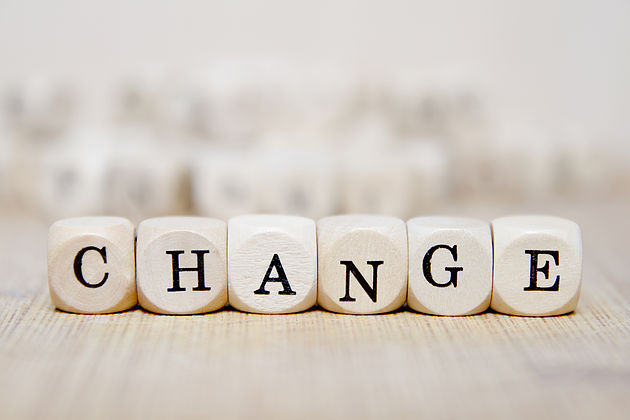
I made a big move this month – literally! For the last two years I’ve been building my practice in Logan in a *ahem* cosy room with a variety of other individuals. I enjoyed working with the other people there and I liked the routine I had, however we were all in the same boat. We weren’t getting very far, but we were comfortable in our ruts and routines – they were familiar and felt safe.
There was no risk.
There was no uncertainty.
And there was no growth.
There comes a point for every person when they need to evaluate their current situation and think about whether it is the best place for them. This can be in relation to their physical location, their career path, their relationships or even their own personality. Making that kind of evaluation, however, takes a certain brutal honesty. You really need to look at the reality of your situation and think about whether this is the best you can be, or whether you are just cruising along comfortably without any real change. This point may come after a traumatic event or after a period of calm – there is no right or wrong time, however it is important that it comes.
True growth can only happen with change, but as we all know – change is hard. Change is scary. Change is risky. Change is uncertain. Change is necessary. Look at how babies change with every passing week and grow into delightful little children, then challenging adolescents, then wonderful adults. Babies don’t worry about the changes in their lives – they simply accept them, learn as they go and grow into their next stage. As we get older, we become more set in our ways and change becomes harder, but perhaps if we looked at change simply as a way to move onto the next stage it would be less stressful. There is still uncertainty and risk, but the stress that comes with it could be mitigated.
Right up until I moved all my furniture into my room (and even bought two plush red armchairs!), I was uncertain that I was doing the right thing. My room is huge, but I’m alone. Was I making a terrible mistake? Should I have just stayed where I was, comfortable in my tiny room with barely enough room for two adults?
I am comforted by the thought that change leads to growth and growth leads to change – I am embracing the uncertainty and grabbing the opportunity to launch into my next stage with both hands…. …and a fast beating heart!

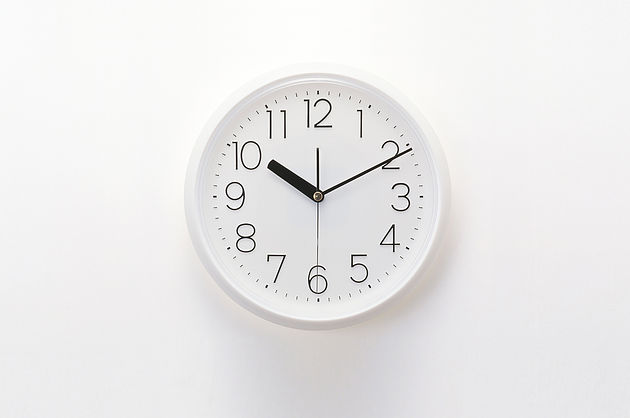
“Hi, how are you?”
“Great! I’ve been so busy! You?”
“Oh yeah, I’ve been so busy, but I’ve been good. So tired, though…”
“Yeah, I get that. I need a holiday, but it’s just too busy at work and everyone needs a piece of me…”
How many conversations have you had like this? How many times have you equated being busy with being successful? How many times have you sat down to take a breath, then quietly castigated yourself for wasting time, doing nothing or being unproductive?
I recently had a conversation about productivity, taking time to do nothing, the very finite number of hours in a day and how we live in a society that rewards us for simply spending time at work rather than necessarily being productive at work. We are praised for ‘putting in the hours’, but not necessarily recognised for the actual output of those hours. More than that, as a society we look down on time spent doing nothing or time spent on the self and call it wasted. This couldn’t be further from the truth in my mind – time spent on the self is incredibly important.
I find myself repeating to people that self care is not a luxury – it’s a necessity. This means that time spent on the self if certainly not wasted – it’s essential for all aspects of health. Physical, mental and spiritual health all rely of having time available for rest and personal development. When that time is restricted, when we are encouraged to spend close to half our day at work, the opportunity for personal growth, proper rest and true health are severely restricted as well.
I’d love to see a time when a better work-life balance is truly attainable for the majority of people, when time spent on the self is seen as valuable and necessary. I think that will be a time when mental and physical health improves for all.

Recent Comments